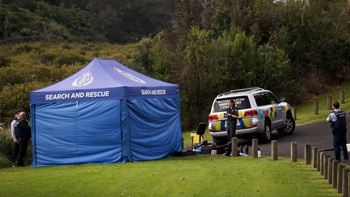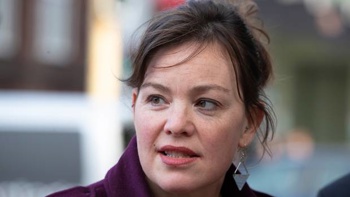
Every good Kiwi knows the answer to the question, “What day is Father’s Day?”
But the holiday has been around since long before the legendary Solly called in to More FM to immortalise the answer to that elusive question from long-suffering host Gareth Lischner.
This year, Father’s Day takes place this Sunday, September 3, in New Zealand. But as we prepare to celebrate the dads, grandads and father figures in our lives, there’s a bigger question here: Why do different countries around the world celebrate Father’s Day on different dates?
Here in Aotearoa we already have to keep up with time differences around the world, dress a season behind the fashion and shiver through winter while scrolling through endless #eurosummer posts on Instagram - so why do we do Father’s Day differently too?
It might seem like totally random dates have been chosen to celebrate the parents and grandparents in our lives, but it turns out that both Father’s Day and Mother’s Day have a long and somewhat bittersweet history.
So, before the cliched Hallmark cards first hit the shelves and we started gifting our dads endless pairs of socks and fancy barbecue sauces and our mums the never-ending breakfast in bed and bouquets of flowers, how did people celebrate?
/cloudfront-ap-southeast-2.images.arcpublishing.com/nzme/RBSSRJMP2ZBXBIGADVQXZMTPPY.jpg) Father's Day is a time to celebrate the father figures in our lives - but why do we celebrate on a different date to other countries? Photo / 123RF
Father's Day is a time to celebrate the father figures in our lives - but why do we celebrate on a different date to other countries? Photo / 123RF
The origins of Mother’s Day
Mother’s Day is celebrated in New Zealand on the second Sunday in May each year.
The ancient Greeks and Romans held festivals to honour mother goddesses Rhea and Cybele, while the early Christian festival, Mothering Sunday, was celebrated in what we now know as the UK. On the fourth Sunday during Lent around Easter, people would return home to their “mother church” for a special service and to reunite with their families.
According to Reader’s Digest, Mother’s Day originated in the US in the 1860s when Ann Reeves Jarvis organised Mothers’ Friendship Day to promote peace between former Union and Confederate soldiers, who fought on opposite sides in the Civil War.
Suffragette Julia Ward Howe, also American, wrote a Mother’s Day Proclamation in 1870, calling on mothers to unite to promote world peace. It starts with the stirring words: “Arise, all women who have hearts, whether your baptism be that of water or of tears! Say firmly: ‘We will not have great questions decided by irrelevant agencies, our husbands shall not come to us, reeking with carnage, for caresses and applause.’”
Jarvis’ daughter Anna Jarvis held the first Mother’s Day worship service in May 1908 at Andrews Methodist Episcopal Church in West Virginia. The church is now home to the International Mother’s Day shrine. She campaigned for the day to become a national holiday, and in 1914, the president at the time, Woodrow Wilson, officially established the second Sunday in May as Mother’s Day.
But she would later denounce how commercialised the holiday had become and would sue several groups for using the name Mother’s Day. By the time she died in 1948, she had disowned the day completely.
/cloudfront-ap-southeast-2.images.arcpublishing.com/nzme/UOKYLM2SHFCNXBLBQGJJJJXU6Q.jpg) Before the traditional breakfast in bed, how did we celebrate Mother's Day and Father's Day? Photo / Getty Images
Before the traditional breakfast in bed, how did we celebrate Mother's Day and Father's Day? Photo / Getty Images
The origins of Father’s Day
History books show that Mother’s Day existed first - but the celebration of father figures also dates back centuries.
Archaeologists have reported finding an ancient Babylonian tablet from a boy named Elmesu addressed to his father, wishing him health and a long life. It may just be the very first Father’s Day card - without a single reference to farts, hair loss or generally getting old.
The modern version of Father’s Day originated in the US, founded by a woman named Sonara Dodd. She was one of six children raised by her widowed father, who was also a Civil War veteran.
To celebrate her own solo dad and fathers everywhere, she successfully campaigned for the first citywide Father’s Day celebration in Spokane, Washington in 1910.
By 1972, President Richard Nixon had signed a proclamation making Father’s Day an official holiday in the US on the third Sunday in June. Like Mother’s Day, it’s not a public holiday elsewhere but is typically celebrated on a Sunday.
Why do different countries celebrate Mother’s Day and Father’s Day on different dates?
Turns out it’s got a lot to do with religious traditions and the contrasting seasons in different parts of the world.
Many countries either follow in the footsteps of the UK or of the US. In New Zealand, we celebrate Mother’s Day on the second Sunday in May just like the US, but we celebrate Father’s Day at the start of spring - as do Australia, Papua New Guinea and Fiji - while the UK and the US celebrate dads on the third Sunday in June.
It’s convenient for New Zealand to celebrate in spring, because we already have a lot of holidays across the months when other countries typically celebrate.
Several countries have their own Mother’s Day and Father’s Day traditions that last longer than just one day.
India celebrates mothers with the 10-day Durga Puja festival. It’s partly a religious festival celebrating goddess Durga conquering the demon Mahishasur, and partly a time for family reunions, with feasts, gift giving and processions.
In Peru, Mother’s Day is a time to visit the graves of your female ancestors, clean the gravestones and decorate them with flowers before sharing food and drinks with your family at the ceremony. Bolivia celebrates all women, not just mothers, on Mother’s Day - marking the day women joined men in battle to defeat the invading Spanish, on May 27, 1812.
Thailand’s Mother’s Day marks their former Queen Sirikit’s birthday on August 12. On this day, people offer food to monks, recite songs and poems, and children kneel at their mothers’ feet in respect.
In Italy, Portugal and Spain, Father’s Day is celebrated on March 19 in honor of Jesus’ father Joseph of Nazareth. Mexico’s Father’s Day includes a 21km race held in Mexico City’s Bosque de Tlalpan, known as the Carrera Dia del Padre, every year. The most popular race on the day is naturally the father-son race.
Thailand celebrates on December 5, the birthday of their previous king Bhumibol Adulyadej. Traditionally, the current king gives a speech on the day and fathers and grandfathers receive canna flowers, symbolising masculinity.
Germany celebrates on Ascension Day, 40 days after Easter Sunday, by hiking outdoors and drinking alcohol. An elite combination.
But if you’re not up to running a 21km race with your dad, engraving him a stone tablet, or heading out for a beer-fuelled hike together, you can find inspiration for Father’s Day in the Herald’s annual gift guide.
Bethany Reitsma is an Auckland-based journalist covering lifestyle and entertainment stories who joined the Herald in 2019. She specialises in lifestyle human interest stories, money-saving hacks and anything even remotely related to coffee.
Take your Radio, Podcasts and Music with you









